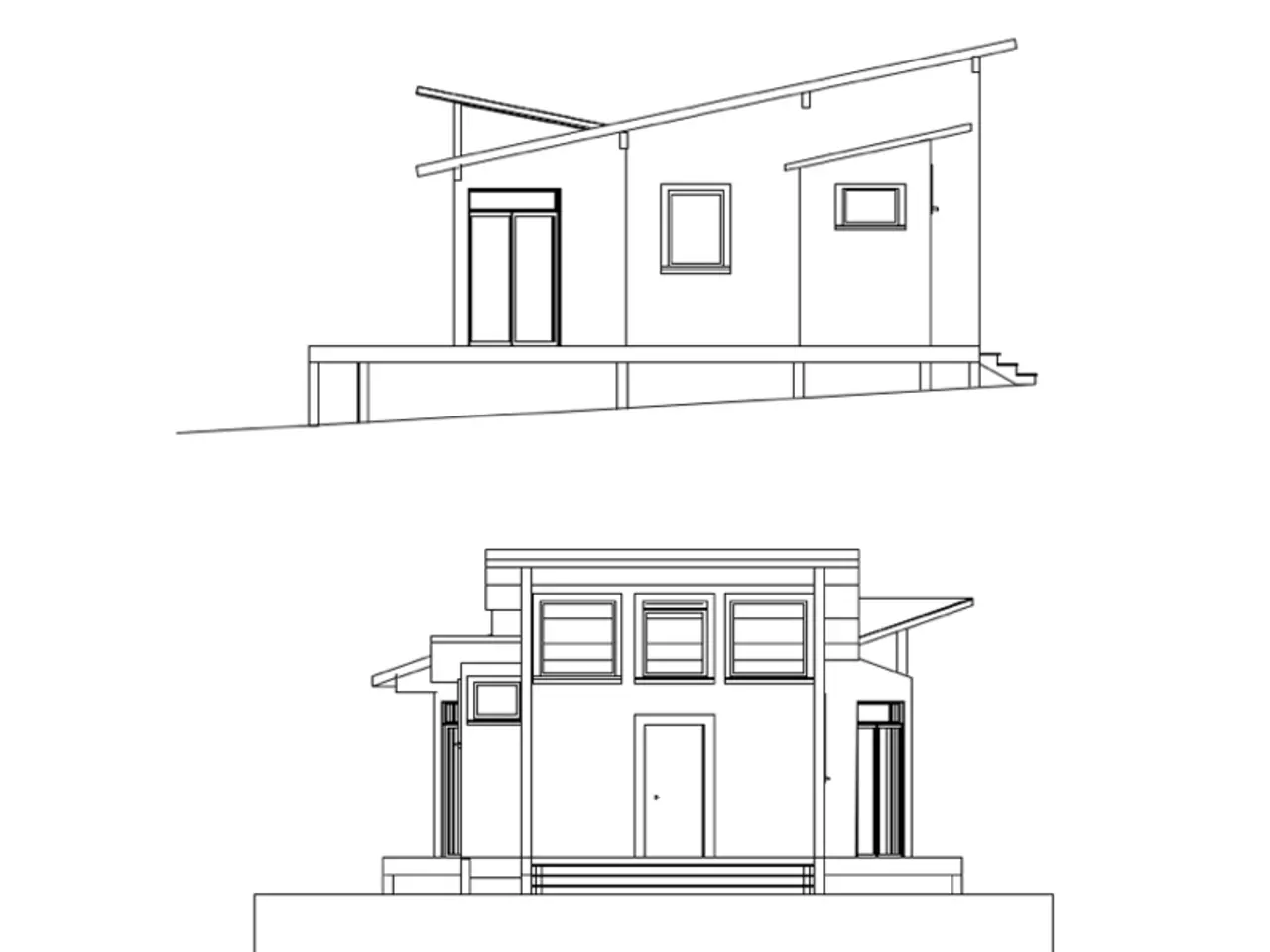Sky-high rent increases persist in metropolitan areas, defying the rent control legislation - Increases in rent observed in urban centers, disregarding deceleration in property costs.
Let's chat about the skyrocketing rental prices in major German cities, and the issue we've got with rent control. Here's the lowdown:
Renting a pad in some of Germany's top cities has turned into a pricey affair over the past few years. Believe it or not, an analysis by the Housing Ministry shows that the average offered rents in the 14 largest cities have spiked by an impressive nearly 50% since 2015. Berlin, known for its vibrant nightlife and creative scene, has been hit the hardest, with rents more than doubling.
So, what's causing this rent frenzy? Well, the folks over at the Federal Institute for Research on Building, Urban Affairs and Spatial Development (BBSR) have a hunch that it's due to a combination of factors, like tight housing markets and apartment listings on the internet. But don't forget, they also warned that direct real estate agent mediation and other forms of lease arrangements might distort the data.
Hotspots to Cool Down
The analysis shows that Munich takes the prize for the most expensive city to rent in, with prices approaching €22 per square meter, followed closely by Berlin at nearly €18 per square meter. Surprise, surprise – it's Berlin, Leipzig, and Bremen that are leading the pack when it comes to the highest rent increases, with Berlin clocking in at a mind-boggling 107%, Leipzig at 67.7%, and Bremen at 57%. Meanwhile, Dresden fares a bit better at a modest 28.4% rent hike.
Left Party MP, Caren Lay, has voiced her concerns: "Rent prices are skyrocketing, making moving nearly impossible and further exacerbating social division in our society." She isn't afraid to speak her mind when she calls the current rent control laws "riddled with holes" and failing to offer tenants effective protection. Lay's not impressed by the federal government's plan to simply prolong the regulation without making any major adjustments.
The Nitty-Gritty of Rent Control
In urban hotspots, rent control limits rent hikes to a maximum of 10% above the local comparable rent levels. However, there are loopholes worth mentioning:- New buildings rented out for the first time after 2014 are exempt from rent control.- Comprehensively modernized apartments are also off the hook.- Furthermore, there's no public price control – if tenants suspect a violation, they must take the matter into their own hands and act against the landlord.
In an attempt to get a handle on this runaway train, the federal government has been brainstorming new solutions:- They've extended the 'Mietpreisbremse' rent control law through 2029, which will cap new rental contracts in tight housing markets at a maximum of 10% above local comparative rent levels.- Additionally, the government is proposing new legislation to limit rents on existing apartments to only 10% above local averages in tight markets, as well as a shift in real estate broker fees to the party hiring them. This move could potentially reduce costs for tenants.- Further regulations being considered include stricter rules on index-linked rent increases and controls on furnished lets, which are sometimes used to circumnavigate rent caps.- The Housing Ministry is also planning a "housing construction boost," with measures such as streamlining the building approval process, embracing modern construction techniques, and increasing available land for new residences to address the high demand for housing – Berlin, for instance, needs around 23,000 fresh flats each year.
Experts caution that despite these efforts, construction projects are still lagging behind demand. As a result, rents are predicted to continue soaring in the short-term. The interplay of tight supply and surging demand remains the main culprit behind the housing affordability crisis in some of Germany's biggest cities, and it seems that rent control alone isn't enough to halt the escalation of rent prices[1][2][3][4][5].
In conclusion, although Germany's rent control laws have been strengthened and extended, their effectiveness is limited by market pressures and inadequate housing supply. The federal government is complementing rent regulations with increased housing construction initiatives and new legislative measures aimed at bolstering tenant protection and shaping a more equitable rental market[1][3][4][5].
- The stark increase in rental prices in major German cities, such as Berlin and Munich, has been a significant concern, with rents more than doubling in Berlin and approaching €22 per square meter in Munich.
- The current rent control laws in urban hotspots limit rent hikes to a maximum of 10% above local comparable rent levels, but there are loopholes, such as exemptions for new buildings and comprehensively modernized apartments.
- To address this issue, the federal government has extended the 'Mietpreisbremse' rent control law, proposed new legislation to limit rents on existing apartments, and is considering stricter rules on index-linked rent increases and controls on furnished lets.
- Experts suggest that despite these efforts, construction projects are still lagging behind demand, and rents are predicted to continue soaring in the short-term due to the interplay of tight supply and surging demand, with Germany's biggest cities experiencing a housing affordability crisis.






